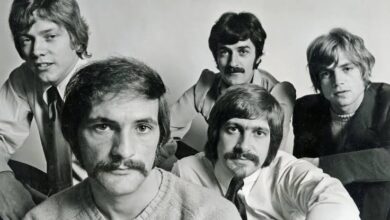CONTROVERSY ERUPTS: Marillion’s Fish Makes Shocking Revelations: “We Were Never Truly a Band”

Marillion’s Fish Makes Shocking Revelations: “We Were Never Truly a Band”
In a stunning and unexpected twist that has left fans reeling, former Marillion frontman Fish (real name Derek William Dick) has come forward with revelations that cast a shadow over the legacy of one of progressive rock’s most iconic bands. In an explosive interview, Fish pulled no punches—accusing his former bandmates of betrayal, manipulation, and even suggesting that Marillion was “more of a business arrangement than a band.”
Fish, who fronted the band from 1981 to 1988 and was the voice behind such cult classics as Kayleigh, Lavender, and Script for a Jester’s Tear, claims that behind the soaring synths and theatrical performances was a cauldron of ego, creative clashes, and cold calculations.
“The truth is, Marillion was never a brotherhood,” Fish said. “It was a corporate entity. We didn’t write songs together—we negotiated them. Every lyric, every solo had to pass through layers of passive-aggression and quiet resentment.”
Fish alleges that the final straw came not from a specific argument, but from the slow, calculated push to sideline his creative influence. According to him, the band’s desire to become more commercially viable led to an intentional watering down of the dark, poetic intensity that he brought to the group.
“They wanted another Misplaced Childhood, another Kayleigh, but without the parts that made it personal. They wanted my voice, but not my vision,” he continued. “I was being erased from my own work.”
Perhaps most jarring is Fish’s claim that Marillion began auditioning potential replacements for him before he officially announced his departure in 1988. While the band publicly maintained that Fish left due to “musical differences,” the singer now says he was quietly pushed out in favor of a less polarizing frontman—eventually leading to the arrival of Steve Hogarth.
“Steve’s a great guy, but let’s be real—he was chosen because he wouldn’t challenge them. He fit the mold. That’s what they wanted: someone who wouldn’t disrupt the system.”
Fish also threw shade on the band’s current incarnation, accusing them of “coasting on nostalgia” and “using my lyrics as bait for ticket sales,” referencing recent tours that prominently feature songs from his era.
Unsurprisingly, Marillion’s camp has yet to respond to these latest comments. But Fish’s bombshell interview has reignited old debates among the fanbase—many of whom still view the Fish-era as the band’s creative peak.
Whether this is the bitter outburst of a disillusioned frontman or the long-awaited truth behind one of prog-rock’s most turbulent splits, one thing is certain: Fish has spoken, and the waters around Marillion are no longer calm.
What do you think? Was Fish a victim of corporate-minded bandmates, or is he rewriting history to serve his own legacy? Let the debate begin.









